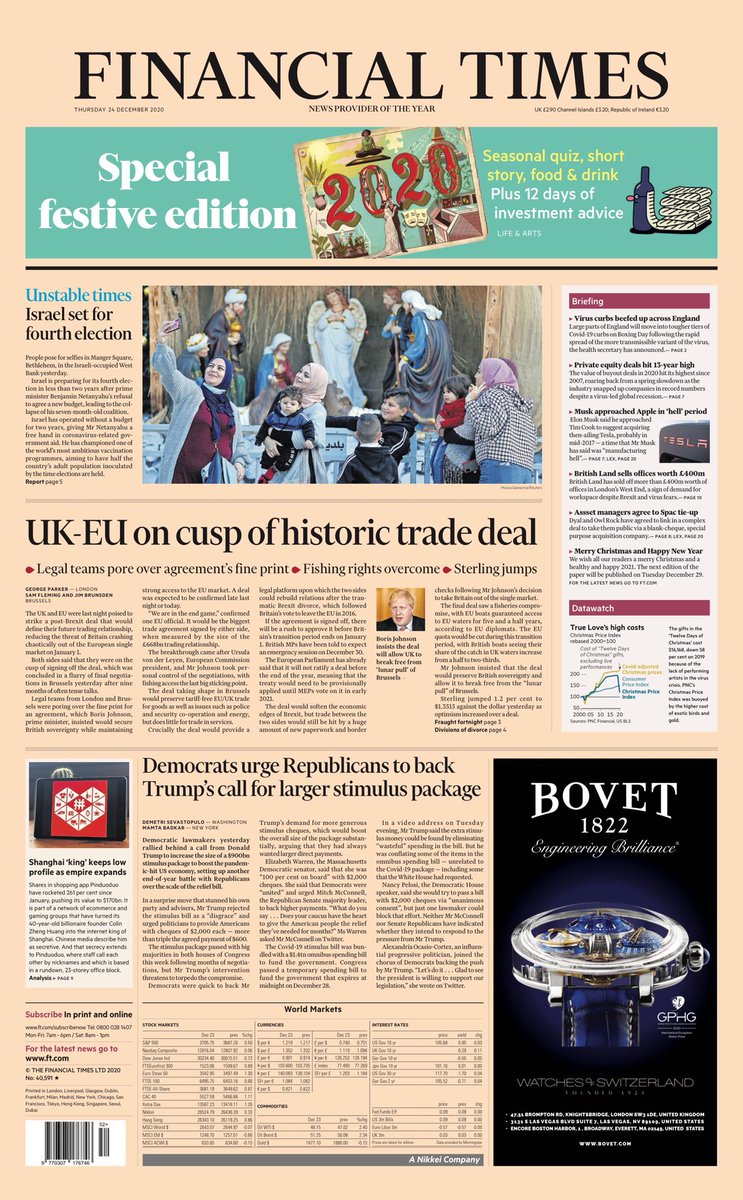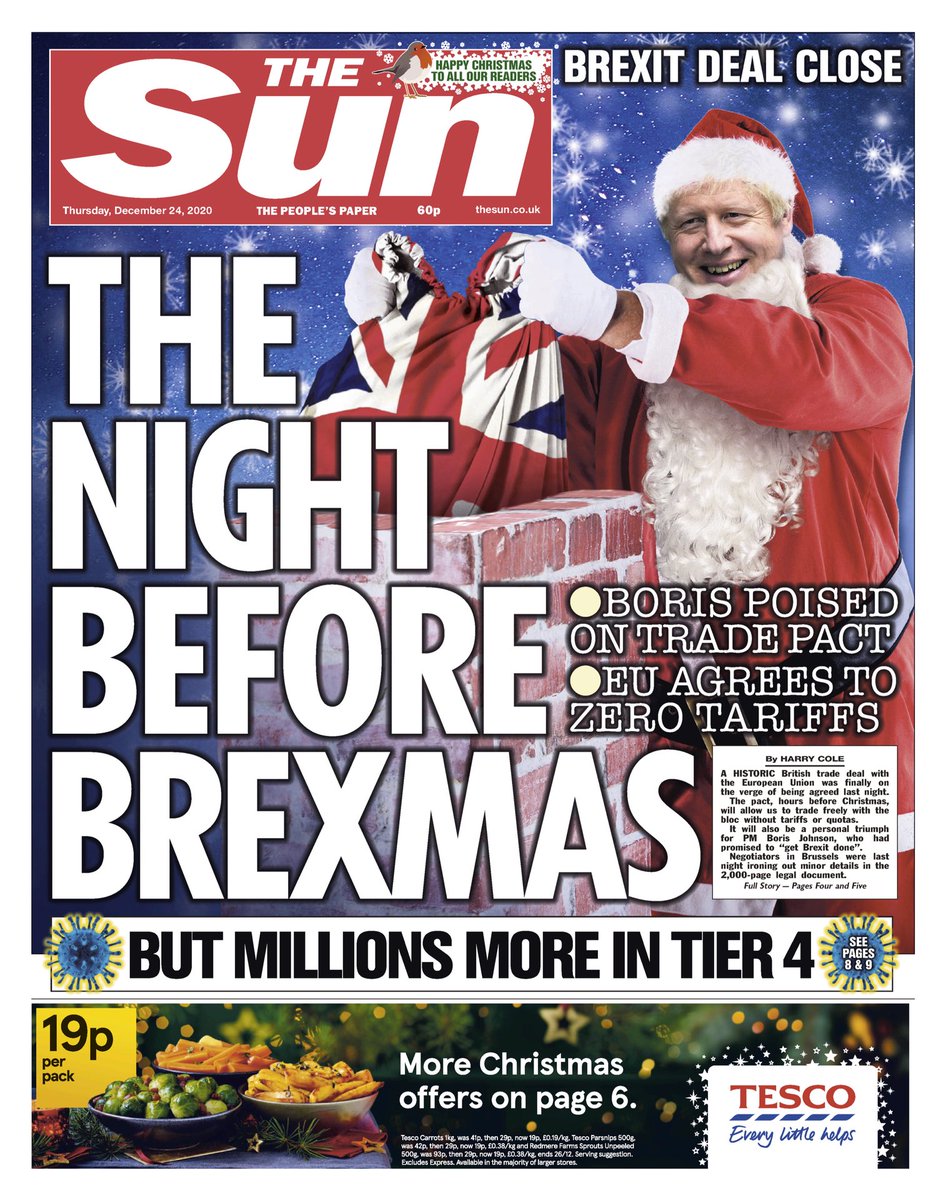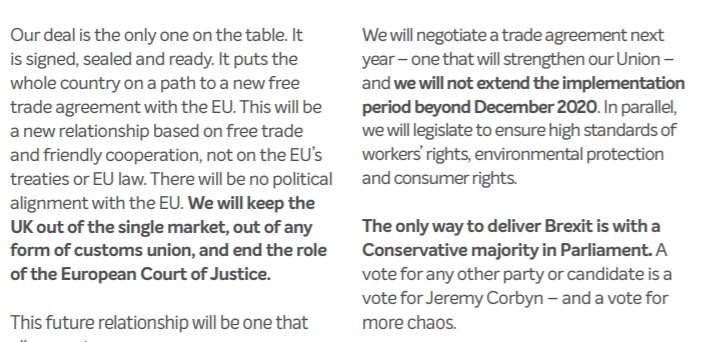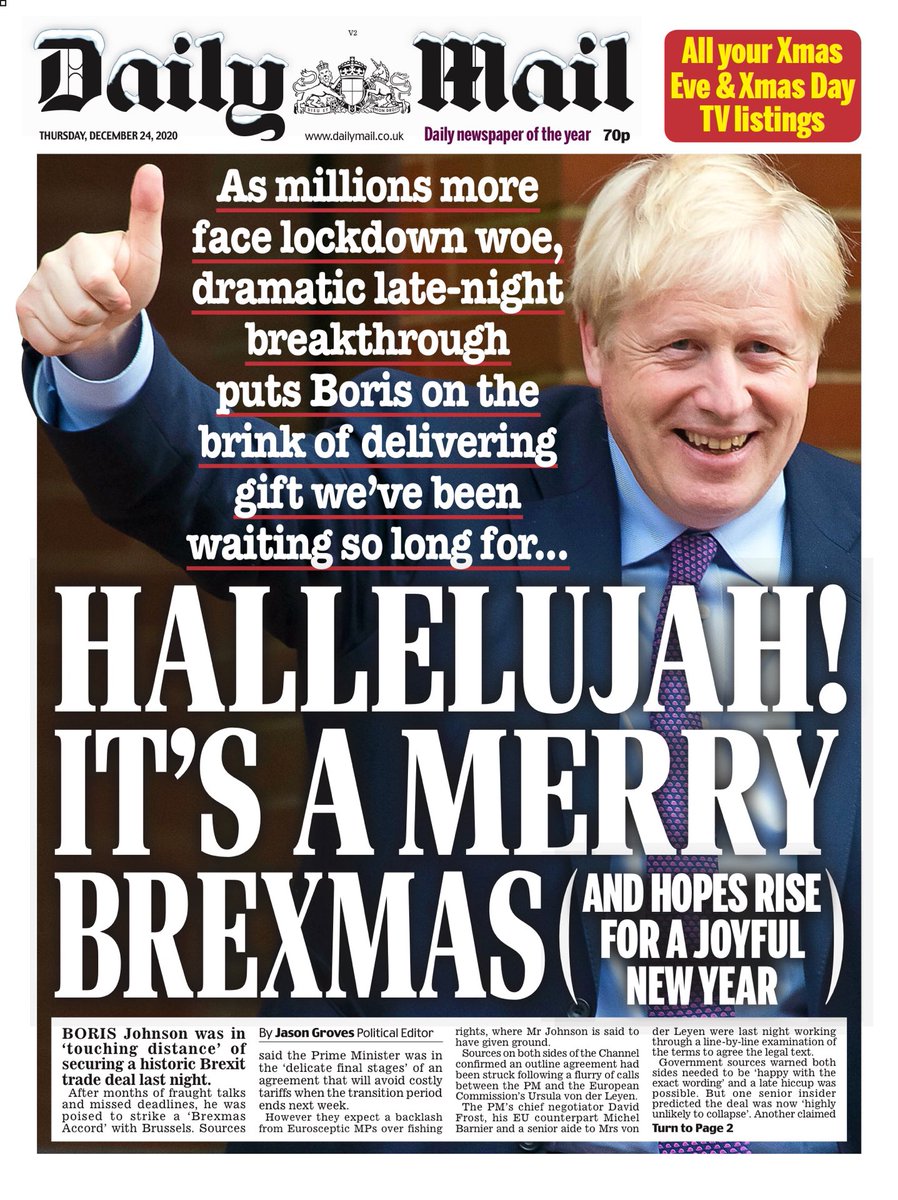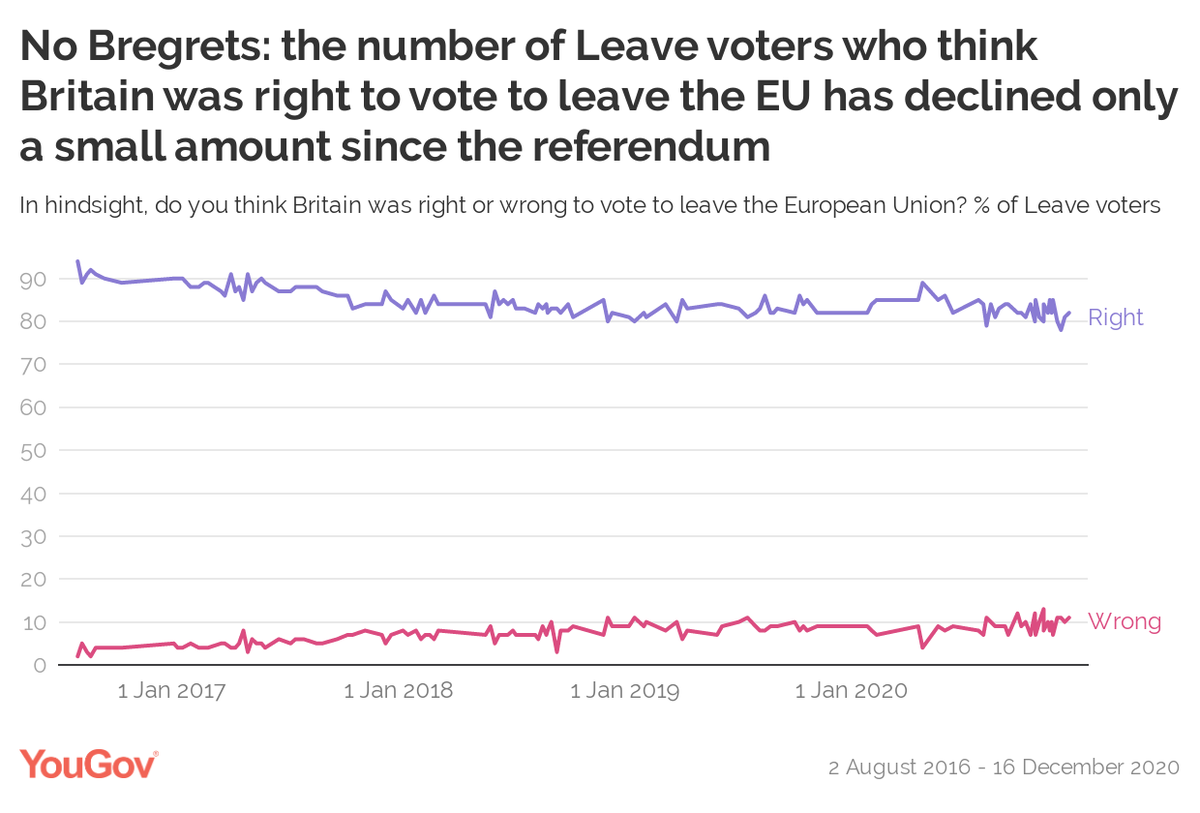The FT and the Sun agree that there is very likely to be an EU/UK trade deal. Ht #TomorrowsPapersToday
I think this is clearly good news, for several reasons, compared to the alternative.
I think this is clearly good news, for several reasons, compared to the alternative.
1. Democratic politics. There was a mandate for Brexit from the 52%-48% vote in the referendum of 2016. That was reinforced by the 2019 General Election result. In both cases, the public argument was explicitly for a negotiated, managed departure: a UK-EU trade deal.
2019
2019
2. Economics. One odd thing about the Brexit debate is that all sides say they want to promote free trade. So UK has successfully negotiated the rollover of many EU global trade deals. Its incoherent to be for global free trade & indifferent about free trade in this continent.
3. Fish. Incoherent to have no UK-EU deal because unable to negotiate an agreement on fish.
Not because of the comparatively small economic value of fish. Also because fishing rights without EU market access was of little or no practical use for UK fishing
Not because of the comparatively small economic value of fish. Also because fishing rights without EU market access was of little or no practical use for UK fishing
4. Multilateralism. Broad potential cross-referendum consensus on UK as constructive multilateral partner of other democracies states (NATO, US, Canzuk, Europe) on broad range of issues: security, trade, climate, human rights & democracy.
No deal blame game was big rush to this
No deal blame game was big rush to this
5. Closure (up to a point). A Brexit deal aligns direct & representative democracy. 2016 referendum result was delivered technically (with a standstill transition) on 30/1/2020 + now substantively with the post-transition deal.Whatever its merits, this is actually existing Brexit
In delivering the 2016 referendum, the Brexit deal also now exhausts it.
This and future govts could make a future case for more divergence (benefits & costs) or closer UK-EU alignment (benefits & constraints) or other UK deals (US, Canzuk) on their merits, not from 2016
This and future govts could make a future case for more divergence (benefits & costs) or closer UK-EU alignment (benefits & constraints) or other UK deals (US, Canzuk) on their merits, not from 2016
Unclear 2017 GE put a new referendum back in the debate. Its advocates always I think underestimated the clarity/ability to cut through of a simple case that you had to deliver on referendum one (leave) before considering reversing it (ie, rejoin, not return, has legitimacy).
No Deal always had potential to be an accidental outcome, given structure of Article 50.
But its not an argument that anybody made & won a public argument for. A significant minority (25-33%) were up for it, but even with a plurality of Leavers its claim to a mandate was v shaky
But its not an argument that anybody made & won a public argument for. A significant minority (25-33%) were up for it, but even with a plurality of Leavers its claim to a mandate was v shaky
Actually Existing Brexit does not deliver everything some advocates said it would. Eg, Boris Johnson on 26th June 2016, after the vote, seemed to envisage a much closer UK-EU partnership than the one he has now delivered https://twitter.com/sundersays/status/1131496520090562560?s=19
Against that, the 2019 GE amounts to a clear decision of the political community (voters and elected representatives) to proceed with the negotiated deal, and the proposal of a free trade deal that involved a pretty hard Brexit.
Objections to this on the basis of the electoral system are rather weak. You have to prevail under the system we have (before you can change it). And the electorate decisively turned down one opportunity to change it in the now forgotten referendum of 2011.
"What does Leave look like?"
This is the most detail that the 2016 Vote Leave campaign set out. The campaign believed it would be possible to avoid Article 50 as the way to negotiate, but was very confident of a UK-EU deal on free trade and no tariffs.
http://www.voteleavetakecontrol.org/briefing_newdeal.html
This is the most detail that the 2016 Vote Leave campaign set out. The campaign believed it would be possible to avoid Article 50 as the way to negotiate, but was very confident of a UK-EU deal on free trade and no tariffs.
http://www.voteleavetakecontrol.org/briefing_newdeal.html
6. Pragmatism. In my view, it simply was not credible that the UK was ready for a No Deal outcome, and that WTO arrangements were "more than satisfactory". Govt, business & public all unprepared.
Political fallout of realising that unpredictable, potentially quite ugly.
Political fallout of realising that unpredictable, potentially quite ugly.
When we have the detail, there is every chance this deal (Actually Existing Brexit) may prove widely unloved on all sides. Too pragmatic for some (why have any treaty with the EU when we left it) & pointlessly divergent for no benefit for others (pro-single market or pro-EU).
It is also - I think - perhaps underestimated that the changes and hassles (inevitably somewhat disruptive) might now be blamed on the deal. (The changes are the consequence of wanting a deal outside the customs union & single market, so that FTA and no deal share some features)
Nevertheless, we may get (some) closure on Brexit as a dominant public-facing political issue for most people, though the complex politics of UK cooperation & trade with EU & others may prove a significant issue for govt, parliament & political parties through 2020s & beyond.
Theresa May's problem was that the Leavers thought she was soft and the Remainers thought she was rock hard. (Though the Mail did promote her deal).
Boris Johnson may see his opponents saying he caved in & compromised.Might help Leavers decide to take the declaration of victory?
Boris Johnson may see his opponents saying he caved in & compromised.Might help Leavers decide to take the declaration of victory?
A Brexit deal is an opportunity for its advocates to "normalise" Brexit. Leavers have got quite a lot of what they sought (if not 110%) and there is a longterm strategic case for showing the losers that values they care about (eg internationalism, openness) can persist
Any idea that No Deal (ugly breakdown of UK/EU relations) could prove fastest route to being forced to reapply in 5 years or so never struck me as psychologically/politically plausible prediction. It depended on a flawed "they'll finally see we were right all along" intuition

 Read on Twitter
Read on Twitter